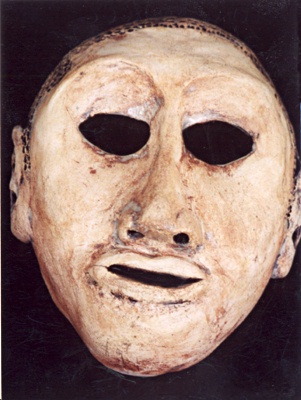All Nonfiction
- Bullying
- Books
- Academic
- Author Interviews
- Celebrity interviews
- College Articles
- College Essays
- Educator of the Year
- Heroes
- Interviews
- Memoir
- Personal Experience
- Sports
- Travel & Culture
All Opinions
- Bullying
- Current Events / Politics
- Discrimination
- Drugs / Alcohol / Smoking
- Entertainment / Celebrities
- Environment
- Love / Relationships
- Movies / Music / TV
- Pop Culture / Trends
- School / College
- Social Issues / Civics
- Spirituality / Religion
- Sports / Hobbies
All Hot Topics
- Bullying
- Community Service
- Environment
- Health
- Letters to the Editor
- Pride & Prejudice
- What Matters
- Back
Summer Guide
- Program Links
- Program Reviews
- Back
College Guide
- College Links
- College Reviews
- College Essays
- College Articles
- Back
Abolsish
In 1957 France was one of the only remaining countries in Western Europe to still use capital punishment as the sentence for murder. The means in which they carried out these gruesome sentences was the machine known as the guillotine, invented by Dr. Joseph Guillotine in 1789 during the French Revolution. Many of the great French thinkers of this time period were appalled by the use of such a medieval instrument in modern times. No one expressed the opinion of abolishing this penalty better then the French writer and philosopher Albert Camus. Although his essay, Reflections on the Guillotine, was published in 1957 the main points that surround its persuasive nature are still relevant and apparent in our own society. The essay is so profound that it actually changed my own opinion on the death penalty when I read it earlier this year. I agree with Camus when he says that the death penalty should be abolished only I’m speaking of modern day United States instead of mid-fifties France. I know it is only a scar on the face of our society to say that the notion of capital punishment was not stricken from our minds more then fifty years ago. To express my opinion all the better I’ll simply denounce two of the strongest arguments that people for capital punishment use. Also I’ll be giving one argument in favor of my opinion. That the death penalty is a deterrent of future murders, that our society needs retribution for murders, and lastly, the argument for abolishing the law, that the death penalty in it’s self is an arbitrary policy in practice.
The word deterrence means to prevent or persuade someone or something from doing something. This is one of the arguments held closest to the hearts of supporters of the death penalty; that the idea of capital punishment deters future murders from taking lives. They state that death is the most feared occurrence of a person’s life, and that it’s always at the back of our human minds. Camus addressed this in 1957 as just as I address it now by saying that these theories physiologically do not make sense. The act of murder is most always done under two circumstances, one being planed and precise and two being a fit of rage or “in the heat of passion”. In the first case the murderer would not fear capital punishment simply because of his arrogance; he does not feel like there is a chance of his getting caught. In the second case, the unbearable thought of death does not even cross the person’s mind.
Another aspect of this that Camus addressed was the fact that executions are not made publicly known and are usually referred to as the dirty little secret of our legal system. The people that write of these executions use vague terms and rarely ever refer to the condemned as actual people. All of the executions are done under quiet measures in a room in a prison, only the privileged few are given permission to view this procedure. Many of these people are family members of the victims, which raises the question of why witnessing a murder would help these people.
Retribution is the act of paying a debt. In relation to the death penalty it’s the act of paying the debt to society, an eye for an eye, a life for a life. Many people bass their entire look on life on this policy and philosophy. But I believe that in the justice system there is no place for it at all. How many murders were carried out under the justification of revenge? Would we not be simply stooping to the level of all of these people who have taken lives?
For something to be arbitrary it must be a direct result of the decisions of people, such as a jury.
As Camus so beautifully said in his own essay on the same subject, “There will be no lasting peace either in the heart of individuals or in social customs until death is outlawed,” I must express in my own conclusion that I am of the same opinion. Is it wrong to find a hint of hypocrisy in the customs of our country when we kill with the expectation that it will prevent killing? Or perhaps that we can console a family that has lost so much by letting them witness the death of the one who took it from them? These questions have gone unanswered for too long and it’s time the call of logic was answered in regards to the death penalty. We have come a long way from the French guiotlline of the fifties but we have not gone far enough, and will not go far enough in the way of making our country a better place until the death penalty is abolished.

Similar Articles
JOIN THE DISCUSSION
This article has 0 comments.
